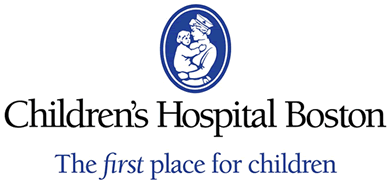Safety and Immunogenicity of Rotavirus Vaccine (RotaTeq(R)) in Infants With Short Bowel Syndrome
| Status: | Completed |
|---|---|
| Conditions: | Gastrointestinal |
| Therapuetic Areas: | Gastroenterology |
| Healthy: | No |
| Age Range: | Any |
| Updated: | 2/4/2013 |
| Start Date: | July 2009 |
| End Date: | January 2013 |
| Contact: | Eric J McGrath, MD |
| Email: | emcgrath@med.wayne.edu |
| Phone: | 313-745-5863 |
Safety and Immunogenicity of Rotavirus Vaccine (RotaTeq(R)) in Infants With Short Bowel Syndrome: A Pilot Study
Rotavirus infection is a common pediatric illness and is the leading cause of severe acute
gastroenteritis (vomiting and diarrhea) in infants and young children. Since February of
2006, an oral vaccine to prevent rotavirus has been approved by the Food and Drug
Administration (FDA). The company that makes the oral vaccine is Merck and Company. Since
the FDA approval, the American Academy of Pediatrics (AAP) and that Advisory Committee on
Immunization Practices (ACIP) has recommended the use of this oral vaccine in infants. A
previous rotavirus oral vaccine, Rotashield, was removed from the market for concerns that
it was causing an increase in a gastrointestinal (GI) disease called intussusception.
However, the new rotavirus vaccine was studied by the manufacturer and was not found to
cause an increase in the cases of intussusception. Intussusception is a disease in which a
portion of the GI tract folds back on itself leading to GI tract obstruction or back-up.
The manufacturer of the vaccine noted on package insert information that the vaccine was not
studied, originally, in infants with a history of GI disorders or in infants who have had
surgery on their abdomen. Currently, there is no information available in the scientific
literature about the use of the oral rotavirus vaccine in infants with GI diseases or those
who have had GI surgeries.
The objective of the study is the assessment of safety and tolerability of the oral RotaTeq®
vaccine for all infants participating in the study. All infants will be followed for
clinical adverse events with active safety surveillance for the first 42 days after each
dose and also monthly afterward for a total of 12 months from the first vaccination date.
The secondary objective of the study is to quantify the immunologic response will occur in
all of the infants in the study. Assessment of percentage of the number of infants who have
a good immune response (three-fold rise in IgA titer or greater) to the complete rotavirus
vaccine series (three oral vaccines in total) by a blood test to check the rotavirus
immunoglobulin A (IgA) level in infants with short bowel syndrome compared to normal infants
will occur.
Infants, meeting eligibility criteria and whose parents have signed informed consent will
have their study information collected. These infants will be tested for the presence of
pre-vaccine anti-rotavirus antibody, IgA levels, as mentioned above. After the blood is
obtained, participants will receive their first oral rotavirus vaccine dose between the ages
of 6 weeks to 12 weeks of life per package insert information. This oral rotavirus vaccine
may be administered with other routine pediatric vaccines at the participant primary care
provider's office. The date of the rotavirus vaccine and lot number would be recorded on
vaccine administration date cards. Most participants will have their vaccines given through
the Infectious Disease clinic staff at the Children's Hospital of Michigan.
Subsequent doses of the oral rotavirus vaccine will be given at a minimal interval between
vaccines of four weeks. The third, and final vaccine dose must be given by 32 weeks of
life. Any adverse reactions to the vaccine will be reported on the National Vaccine Adverse
Event Reporting System and MedWatch forms.
Finally, two weeks after the participants have had all three oral rotavirus vaccine doses,
the second and final blood draw will take place for measuring the post-vaccine level of
anti-rotavirus antibody, IgA.
Participants in the study will be monitored by telephone contacts on days 7, 14, and 42
after each dose and within 48 to 72 hours of each dose of the rotavirus vaccine regarding
any serious adverse events. Each infant will also be assessed in the clinical setting each
week after a vaccine dose has been given. As above, parents of participants will be asked
to fill out the vaccine report card and record the child's temperature, and any episodes of
vomiting, diarrhea, blood in the stools or fussiness for the first seven days. The parents
will also be asked to record any other events from day 8 through 42 after each vaccine is
administered such as fever, ear infection, runny nose, etc. Afterward, parents will also
have monthly phone call safety follow-ups during the 12 month period following the first
vaccination. A Data Safety and Monitoring Board will oversee the study and it's progress
and will have the ability to vote to stop the study should any safety concerns arise.
Inclusion Criteria:
- Only those participants whose parents give full informed consent will be included in
the study.
- Infants will be eligible for enrolment in the study arm if they have the diagnosis of
short bowel syndrome (SBS) and are between the ages of 6 and 12 weeks of age before
the start of the vaccine series.
- SBS infants must also be afebrile,
- have stable to increasing weight,
- have stable electrolytes and be clinically stable for home discharge (or already
discharged home), as assessed by the infant's primary care physicians, prior to
administration of the oral RotaTeq® vaccine.
- Study group infants must have at least 30 cm of residual small intestine with a whole
colon and intact ileocecal valve or at least 45 cm of residual small intestine (with
or without a whole colon) and without an ileocecal valve to be included in the study
based on age-related normal lengths from the literature.
- The SBS infant should be at least 10 days post any gastrointestinal surgery at time
of vaccine administration and be between 10- to 12- weeks of chronological age at
time of first vaccine administration, and be tolerating at least some oral intake
(liquids and/or food). The vaccine will not be given in the neonatal intensive care
unit for the purposes of this study, although the risk of shedding is low with
RotaTeq® vaccine.
- Infants will be eligible for inclusion in the control arm if they have no underlying
chronic gastrointestinal medical conditions (Gastro-esophageal Reflux Disease, GERD,
is allowed) and
- are between the ages of 6 and 12 weeks of age before the start of the vaccine series.
- Normal control arm infants will be estimated gestational age- and age-matched within
14 days to study arm participants for more accurate comparison between the immune
responses.
- These healthy infants will also receive their first vaccine administration at 10- to
12-weeks of chronological age, when possible, so that the immune responses between
the groups will be more comparable.
Exclusion Criteria:
- Infants whose parents do not give full informed consent or whom do not meet inclusion
criteria will be excluded from participation.
- Additionally, Infants who have a demonstrated history of hypersensitivity to any
vaccine component will be excluded.
- Any infant who develops symptoms associated with hypersensitivity reactions after the
first or second dose of the vaccine will also be excluded from the study and any
further doses.
- Those infants with documented fever of greater than 100.5 degrees F. or severe
illness by the end of their 12th week of life and who have not yet received the
vaccine will be excluded.
- Any infant who fails to have blood obtained by the third attempt will be
automatically excluded from the study.
- Infants with a history of rotavirus or history of receipt of any rotavirus vaccine
will be excluded from the study.
- Those infants diagnosed with a congenital or acquired immunodeficiency or neoplasm
will be excluded as will any patient who is potentially immunosuppressed (topical and
inhaled corticosteroid use would allow for inclusion).
- Infants who have received immunoglobulins will also be excluded (history of receipt
of other blood products is allowed).
- Short bowel infants with diagnosed portal hypertension will be excluded.
- Also, any short bowel syndrome infant who is listed or will likely need liver/bowel
transplantation (imminent or evident liver failure due to TPN-induced liver injury, a
total bilirubin level of >7 mg/dl, or stage 2 liver fibrosis, or only two central
venous access sites remain) will be excluded from the study.
- In the short bowel syndrome infants, the principal investigator reserves the right to
exclude any infant on the basis of any clinical safety concern, such as a specific
additional diagnosis, that exists or develops for the individual infant that may be
seen as a potential risk factor for a future adverse event.
- Those infants with household contacts who have immunosuppressive conditions, such as
infants residing in a household with an immunocompromised person, including
individuals with congenital immunodeficiency, HIV infection, leukemia, lymphoma,
Hodgkin's disease, multiple myeloma, generalized malignancy, chronic renal failure,
nephritic syndrome, organ or bone marrow transplantation, or with those receiving
immunosuppressive chemotherapy including long-term systemic corticosteroids will be
excluded from the study.
- Any infant that cannot have adequate follow up for safety by telephone or home visit
will be excluded from the study.
We found this trial at
3
sites
Children's Hospital of Michigan Since 1886, the Children's Hospital of Michigan has been dedicated to...
Click here to add this to my saved trials
Children's Hospital - Boston Boston Children's Hospital is a 395-bed comprehensive center for pediatric health...
Click here to add this to my saved trials
William Beaumont Hospital-Royal Oak The largest Beaumont Hospital is located at 3601 W Thirteen Mile...
Click here to add this to my saved trials


